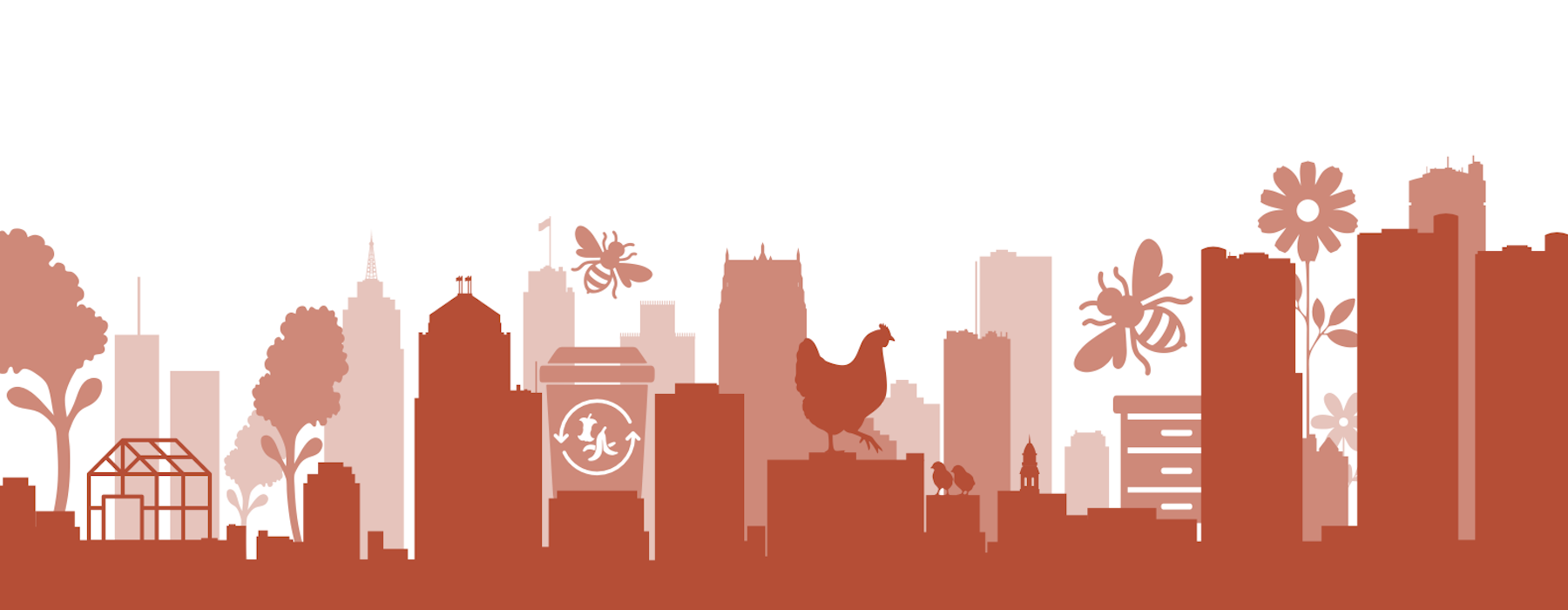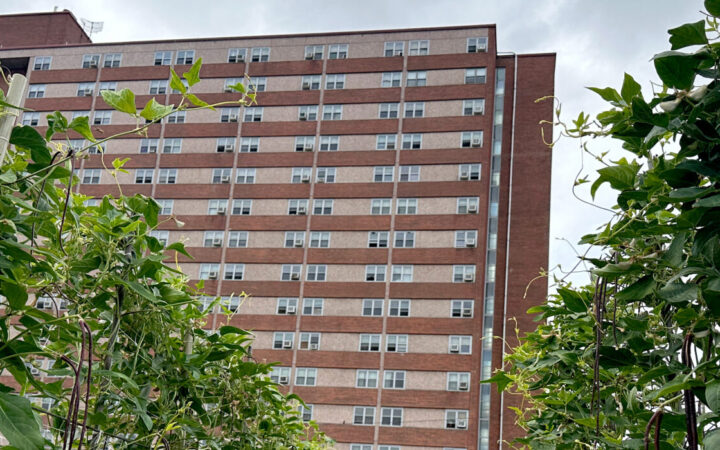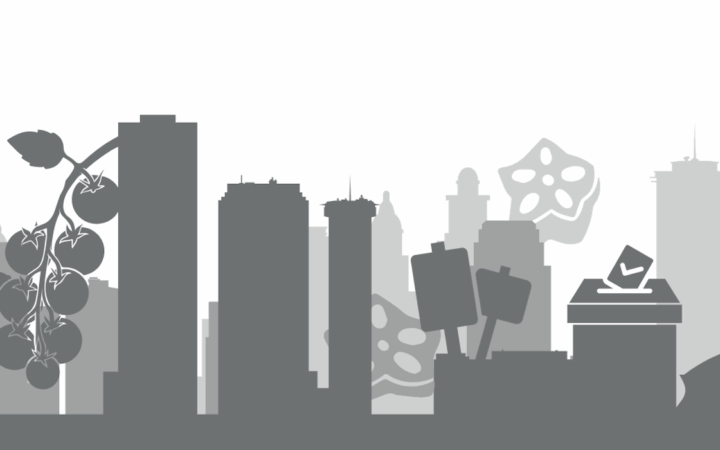This fact sheet distills the information in the Zoning and Land Use section of “Urban Agriculture and Innovative Production: A Guide to Local Policy” into key takeaways for producers and policymakers.
Local Policy Barriers and Strategies for Urban Agriculture
Zoning and land use policies are a key tool that can either support or hinder urban agriculture and innovative production. Land use law broadly refers to the set of laws and regulations that address how land is used. At the local level, land use is typically governed by a set of ordinances included in the zoning code. Zoning codes lay out which uses or activities are allowed in which areas of a city. These uses might be allowed “by-right,” or automatically; “conditionally,” or requiring permission from a city; or under a specific set of conditions where a city makes an exception to the rules, usually called a “variance.”
How Zoning Codes are Created and Updated
▶ State law authorizes cities and municipalities to regulate land use.
▶ City planners create and periodically update a comprehensive plan—also known as a general plan or land use plan—that lays out a vision for the city’s development.
▶ City policymakers act within the framework of the comprehensive plan to
write and update the zoning code, a set of legally enforceable ordinances.
▶ City residents offer input during comprehensive, periodic code revisions, or lobby for smaller, more discrete updates to the zoning code as needed.
Detroit’s Animal Keeping Ordinance
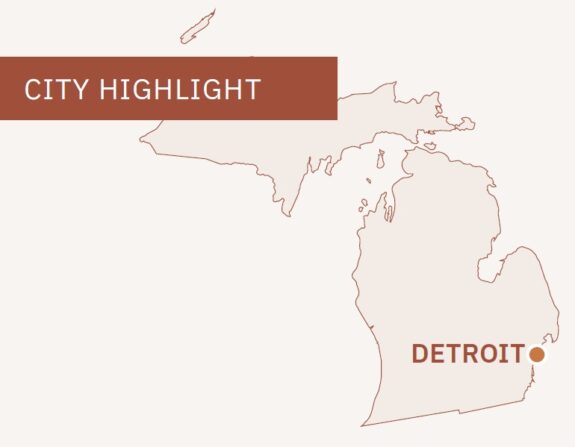 The City of Detroit’s Animal Keeping Ordinance allows residents to keep poultry and bees within city limits, provided they follow specific guidelines. After more than a decade of community organizing, listening sessions, and policy drafting, this ordinance went into effect January 2025 and reduces a common zoning barrier by explicitly permitting animal husbandry in urban areas, where such activities had previously been banned under the letter of the law but widely practiced due to broad community interest and infrequent enforcement by the city. This zoning update provides much-needed clarity and protection for Detroit’s urban farmers.
The City of Detroit’s Animal Keeping Ordinance allows residents to keep poultry and bees within city limits, provided they follow specific guidelines. After more than a decade of community organizing, listening sessions, and policy drafting, this ordinance went into effect January 2025 and reduces a common zoning barrier by explicitly permitting animal husbandry in urban areas, where such activities had previously been banned under the letter of the law but widely practiced due to broad community interest and infrequent enforcement by the city. This zoning update provides much-needed clarity and protection for Detroit’s urban farmers.
Zoning and Land Use Barriers and Policy Strategies
Urban farmers and gardeners who wish to grow food, raise animals, or build farm infrastructure within city limits encounter many barriers in zoning ordinances. This is particularly true when policymakers write zoning codes without explicitly considering urban agriculture as a city land use. However, land use policy reform can provide an important opportunity to support local food production in our cities.
Here are a few common zoning barriers faced by urban producers, alongside policy strategies that city policymakers can consider to better support urban agriculture.
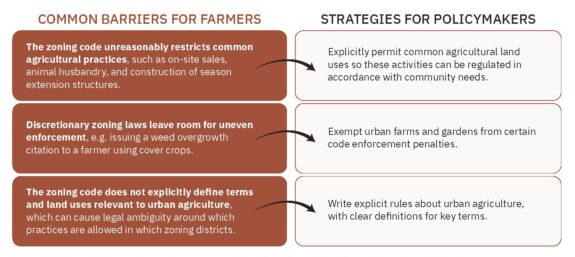
Best Practices for Farmers to Navigate the Zoning Code
▶ Know your zoning code. Learn how your city’s zoning code applies to your farm or operation.
▶ Read the definitions. Scan the zoning code’s definitions section for key terms, like accessory structure or animal husbandry, to know which practices your city allows.
▶ Ask for help or clarification. Reach out to the department responsible for zoning in your city (usually the planning department) for information about applying for any permits needed or for clarification when the language in the code is ambiguous.
▶ Explore options for flexibility. Consider applying for special use permits or variances for agricultural practices that the zoning code does not allow by-right in your district.
▶ Participate in zoning code updates. Engage with your city council to offer suggestions for how to improve the zoning code to support urban producers.
Suggested Citation
Ctr. for Agric. & Food Sys., Zoning and Land Use: Local Policy Barriers and Strategies for Urban Agriculture (2025), https://cafs.vermontlaw.edu/resource-library/zoning-and-land-use.
